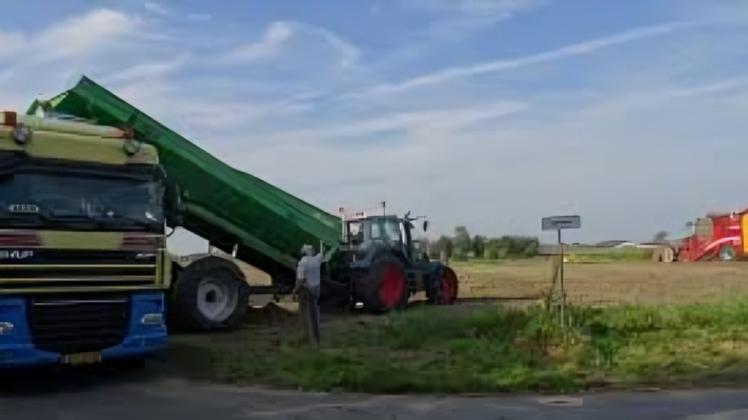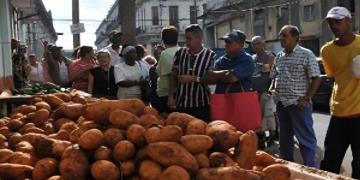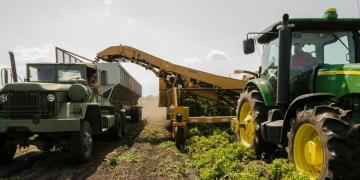Belgium: How do low prices affect the harvesting behavior of potato growers?
The early and mid-early potato varieties have largely been harvested, while the late storage potatoes still need to be dug up in the coming weeks.

Hoping for prices to pick up
Guido Willemse, a potato grower in Ravels, will begin harvesting next week. He supplied the American processor McCain for years, but because he registered his potatoes too late this year, he missed out on a contract. "As a result, all our potatoes, on 150 hectares, are now free."
With prices of around five euros per ton on the open market, he has little reason for optimism, though he remains hopeful. "We store the potatoes in our warehouse. There’s a chance that prices will rise again next year. It wouldn’t be the first time the market has completely turned around in early spring. I’m not panicking yet."
Not all farmers have a storage facility, however. This year, in particular, the number of growers without storage facilities is higher than before. Due to the high prices of recent seasons, many new potato growers have joined the market. "For them, it can be a strategy to leave the potatoes in the ground longer in the hope that prices will recover soon," Willemse explains. According to him, underground storage conditions are ideal. "In principle, you can wait until November, as long as it doesn’t freeze."
Harvesting free-range potatoes is loss-making
Mathieu Vrancken, chairman of the Belpotato trade association and a potato grower himself, confirms that harvesting open-field potatoes is currently loss-making. "The costs of harvesting, transporting, and storing them are higher than the yield." Nevertheless, he warns against delaying the harvest. "The weather can suddenly change, making it impossible to get to the fields in October or November, and the potatoes will rot in the ground. If prices then rise in the spring, you’re doing a bad business."
He, too, will start harvesting next week. Most of his potatoes are under contract, but some will go to the open market. "We all hope that prices will recover somewhat over the course of the rest of the season, but at the moment, there are few factors to support this hope," says the Limburg native.
Incorporating early potatoes
For storage potatoes, growers can speculate on later price increases, but this is less true for early and mid-early varieties like Frieslander, Amora, and Anosta. "Processors primarily use these varieties to fill the gap between the previous year’s harvest and the new harvest of storage potatoes. Once that harvest arrives, they abandon the early varieties," explains Vrancken.
He suspects that’s why some growers left their early varieties in the ground. "Harvesting them wasn’t worth the effort. Because these potatoes can’t be stored, there’s no chance of the price recovering later." Not harvesting them is in stark contrast to past years, when, thanks to favorable market conditions, literally every potato counted.
Bump blue makes storage difficult
Vrancken emphasizes that these harvest concerns apply only to free-range potatoes. "Contracted potatoes go to the factory as planned, at fixed prices." In Flanders, this roughly translates to a ratio of one-third free-range potatoes to two-thirds contracted potatoes.
Finally, he points out an additional challenge: this year’s potatoes have an average underwater weight and high starch content. This makes harvesting more difficult and could lead to more rejections at the factory. "The high starch content makes the tubers more susceptible to bruising, which complicates storage."
Fuente: Traducido por Argenpapa de : vilt.be




